Thales has announced the completion of key factory tests on the mission and combat systems that will equip the Royal Navy’s new Type 31 Inspiration-class frigates, describing the results as a major step forward in the £2 billion programme.
According to the company, Factory Acceptance Tests (FAT) for the Mission System were completed in April 2025, followed by the Combat System tests in June. Both are now moving to land-based trials at the Shore Integration Facility ahead of installation aboard HMS Venturer, the first of the five-ship class under construction at Rosyth.
At the centre of the frigates’ capability will be Thales’ TACTICOS Combat Management System, developed in the Netherlands. The system functions as the operational core of the ship, providing sensor control, picture compilation, situation assessment, action support and weapon control.
James Wooldridge, Thales Programme Director for Type 31, described the milestone as the result of sustained effort: “This has been an incredible achievement over the last 18 months in terms of learning, building, collaborating and holding steadfast towards delivering this mission-critical commitment to our customer. The team has demonstrated some incredible resilience, innovation and commitment.”
The programme is being delivered by an international consortium, with Babcock leading construction at Rosyth. Paul Watson, Arrowhead Managing Director at Babcock, said: “The successful completion of the Mission and Combat Systems FATs marks another significant step forward for the Type 31 programme and reflects the strength of our collaboration with Thales and our wider industry partners. Together, we are delivering a world-class capability for the Royal Navy and creating a strong foundation for the future of the Inspiration Class frigates.”
Andy Laing, Managing Director of Above Water Systems UK at Thales, added: “Working closely with our Royal Navy and Babcock colleagues, we are delighted to have successfully completed this critical stage in the development of the Royal Navy’s new Type 31 frigates. It represents another demonstration of Thales’ proven ability to deliver integrated naval mission systems to the highest standards.”
The completion of both FATs brings the project into a new phase, with the systems now prepared for integration and sea trials in the second half of the decade. The announcement follows steady progress on the physical build of the Type 31 class at Rosyth, where HMS Venturer is being fitted out and work continues on subsequent ships.


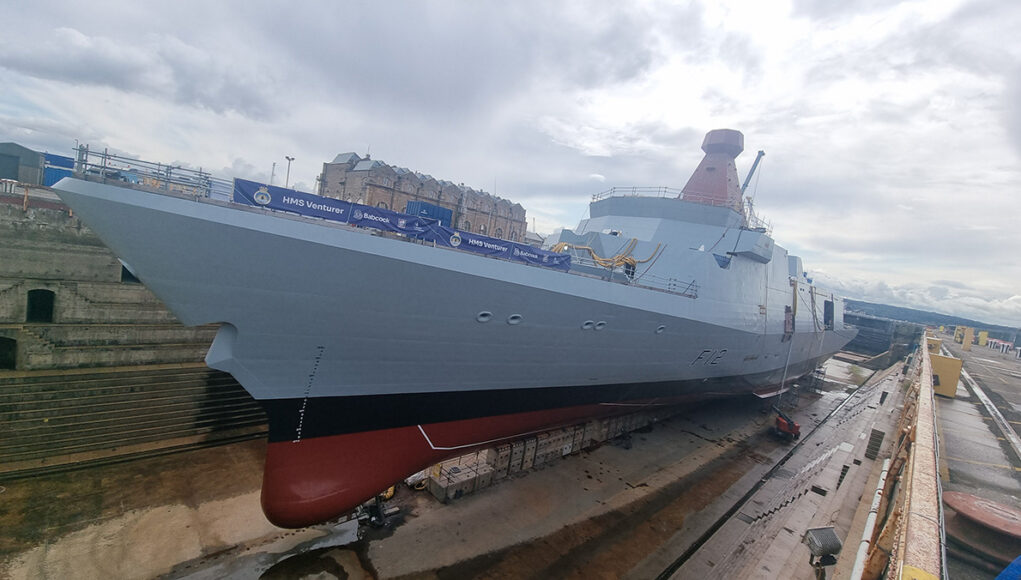
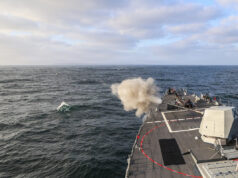
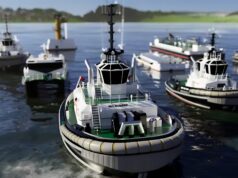
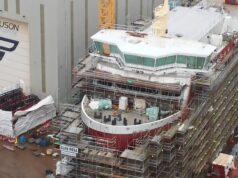
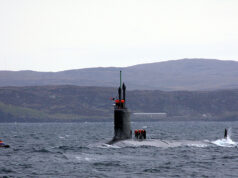
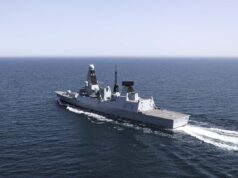
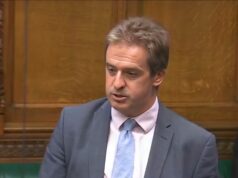
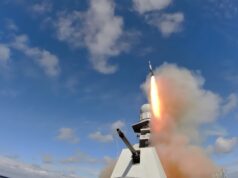
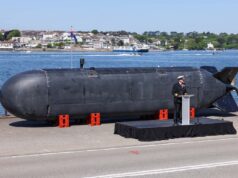
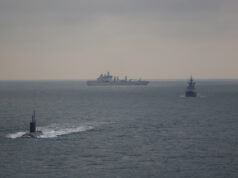
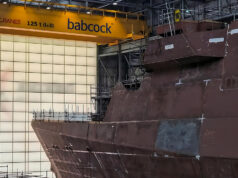

Let’s hope it can be put to see Jan-April with the 2nd ship 6 months behind in service
“ describing the results as a major step forward in the £2 billion programme”
That is inflation for you….if started as a £1.25Bn program then became £1.75Bn….£400m per ship is at least realistic if it has Mk41 etc.
No.Type 31 had a 2 billion budget from the start. 1.25 billion was for the shipyard to build the ships. The balance pays for all the other expense (including GFX) getting the ships into service and supported for the first few years.
The 2 billion has increased, I think it’s now around 2.25 now.
Its a repeat of the inflation of frigates and the suchlike in the 70’s. Sad but with Net Zero and the Ukraine war hitting our energy costs to make them the highest in the industrial world is anyone surprised? Whether there is anything worth defending in the UK exists in 10 years time remains to be seen.
There is a reason that Sweden, Norway and Denmark are shopping in the UK.
When I lived in northern Sweden, near Malmo, the
Swedes shopped in Germany;
Danes shopped in Sweden;
Norway’s shops anywhere but Norway!
The price differentials are extraordinary!
UK will look affordable!
looking forward to seeing the T31 sand it’s performance in the fleet. but I still think the order of just five ships is an opportunity lost
I’d temper that a tiny bit as Babcock had never built a warship so RN, sensibly, decided to see how it went before ordering a full bulk purchase fleet!
I really do hope that there is a follow on order of AAW tweaked versions to partner up with T45.
if there’s one it’ll be the usual co**k up and overpriced farce
Neither the T31 or T26 appear particularly stuffed up or overpriced. T45’s only stuff up was WR21 the whole issue around cost was driven by the Horizon debacle.
If you look at what USN are paying for ABIII or the Consternation Class frigate that gives you some idea of how cost effective UK procurement actually is.
Add to that discerning & well heeled international customers are seriously looking at UK for warships then things are not that bad on price of quality.
nothing to do with Babcock. it’s about how serious the big knobs are about increasing the amount of ships in the fleet the u.k has done it for years we’ll have 12 type 45 destroyers an at least 13 T26. it’s a joke when we retire before we build. ships should leave a joint the fleet on a one -for one basis.
have you been to Stockholm? it was so expensive, I couldn’t afford to go ashore!
Do we know yet what the initial weapons fit of HMS Venturer is going to be ? Is it still 12 CAAM launchers? , Is NSM being fitted before commissioning?
Yes & no.
I haven’t seen anything official with the fitout, just a lot of rumours and details of what it can be capable of. I guess we will see next year once it gets fitted out with weapons.
Hopefully those two x 6 slots are just cutouts and they won’t waste time putting anything in prior to the mk41s or at least cut another 2 slots for 24.
a couple of flintlocks and a bag of sharp pointy sticks. fitted for but not with
Looking at the latest pics of this ship, she looks terrible, all the panels look dented and all the sides show long lines, reminds me of a nackered T23.
But I’m sure they are fine.
Must be the first time you’ve seen a Navy ship.
Yes, never seen one before in my life and this is the worse one of any of them I’ve never seen.
usually the award for ugly ships goes to the Americans
Must be looking at different pictures than me – she looks great.
Obviously I must be.
“should have gone to specsavers” !
But why have they built a great big brick warehouse on the main deck? Where are they going to put the gun?
They tidied her up a lot from when we saw her half completed. Better just to have the 40mm and 57mm till they have more than the basic CAAM in my opinion. Like the Polish 140s.
A couple of years ago the Defence Select Committee asked an admiral when will the Type 32 come out of concept? The answer was, we are waiting to see how the new CMS of the Type 31 works. A pretty surprising response in my opinion, how does the CMS dictate the concept? However, it’s time the Defence Select Committee asked the question again. What does the Navy want from a Type 32?
Might it be that they don’t want it to ever come out of Concept as awkward questions would be asked, like “what now?” Might someone have to make a decision?
No freakin’ money mate.
It doesn’t cost much money to report what you want. Less than leaving it hanging. If there’s no money, make a decision not to buy it.
The MRSS is a bigger priority for them and they can’t the get the budget for both. The navy seems to really want 6 MRSS and it seems the are willing to cancel the T32 and move some of the frigate jobs on tot he MRSS like Fire support and even secondary air defence.
Personally I think it’s a mistake, two or three MRSS would be plenty especially if they are 30,000(t) and the navy can tap on some more T31/32 to get the escort fleet back in to the 20’s.
How can they cancel T32 Jim ? Surely that would mess up all the long lead orders ?
“I see no ships”.
As we went over before, in another thread, the best solution would be for T32 to be AAW land attack focussed.
I get the idea that T31 needs to work before ordering more. This is the software validation. The timing is interestingly before the equipment shipping list is published.
The idea of having six GATOR sized platforms is too much concentrated on a single platform.
Nobody has explained the drivers for this loopy design.
Exactly; what are the six ‘gator’ sized MRSS for? Are they going to be global singletons, pootling around policing the world? Are they a second attempt at the original T26 ‘global combat ship’ ? Or just the missing piece of the CSG jigsaw?
Radakin did actually state that The Aircraft Carrier Alliance should have gone on to build LPH’s.
So maybe that is a clue?
Maybe, but the reported outline requirements and ‘informed’ concepts from Navantia do point to a LPD. Mk41 VLS seems like a must have feature, for AAW self defence and strike. Actually, I do wonder if the thinking wasn’t influenced by Argus, which was selected for upgrade to littoral support / strike – 28,000 tons, 175m, 3 helo spots, hangar deck for up to 9 Merlins + containerised accomodation. Maybe they just thought, you know what, what we need is Argus with a well deck and frigate armament.
I think if we don’t know the what or whether of the Type 32 it will affect the design of the MRSS. No Type 32 (or T31B2) means MRSS will try to do too much, which will make them more costly and slower to build and us ending up with fewer.
A fair point to make, but the mood music does seem to point to navy having decided in favour of 6 large LPD – frigate hybrids rather than the current littoral response groups. The RN / RFA have done a lot of amphibious exercises in Australia with a combination of Lyme Bay and Argus. Both these will be replaced. What’s the cost of a 28,000 ton LPD versus a 17,000 LSD, which would also need a frigate escort? How do the crew numbers and running costs compare with a 2 ship alternative? I’ll bet all this has been factored in to the decision and it wouldn’t surprise me if 3 fewer frigates and 6 large ‘hybrid’ frigate armed LPDs was the optimum cost/ capability solution.
Risk is these monster frigates/LPD hybrids are the new Albions of the fleet and are too expensive to run so get cut.
I simply don’t get what they are for if RM are no longer doing contested landings.
RN appears to be getting the camel design committee up and running…..
I don’t know. We will have to wait and see what the next generation of ship to shore connectors are like. One thing that does occur to me though, is that a these proposed hybrids could carry a large number of USVs, UUvs and UAVs. They could control an extensive area of sea and littoral.
Perhaps the RN thinks 19 escorts + 8 OPVs is enough ….if the B1 Rivers morph into 3 more T31s.
Interesting. Why not? Better to have 3 more T31’s than Rivers any day. Especially if they can be given loyal ASW drones. ‘We want 8 and we wont wait!’
If the navy are settled on commercial ships like RFA Sterling Castle for the MCM mothership role, then the maybe the option opens up for a small batch of high end T31 AAW ships, similar to those mooted for the Danes?
Well T31 has legs and can defend itself in a moderate AAW situation and attack with Mk41 and NSM.
Some gnashing of teeth on ship yard capability if all comes good with Norway, Sweden and Denmark… (Not forgetting an EU funded fleet of 4*T31 for the Baltic States) and where to build our future capabilities.
Simples, build any export 31s in Poland including those Baltic fleet platforms – the Poles are already building a much more versatile ship(s) and being Poles would bang out any future orders with income/profit sharing.
It was actually part of the strategy behind UKTI (United Kingdom Trade and Investment led conferences back in the early noughties when they wanted us to keep design but shift high carbon producing industries to places like Central Europe; I know, I won an export Award for my County 😉
Chill guys, get the export sales, tax the revenue, invest in Defence to invest in the Country. Cheers Easy.